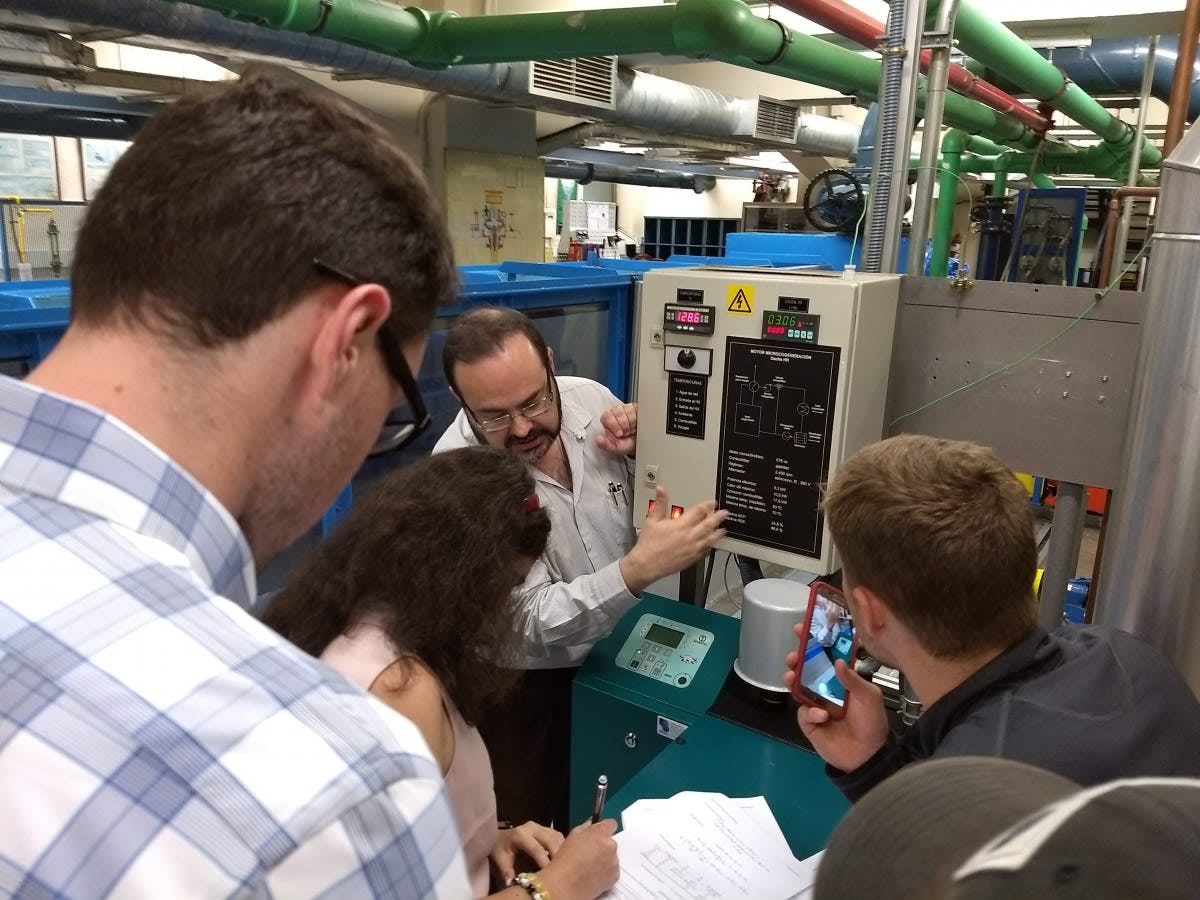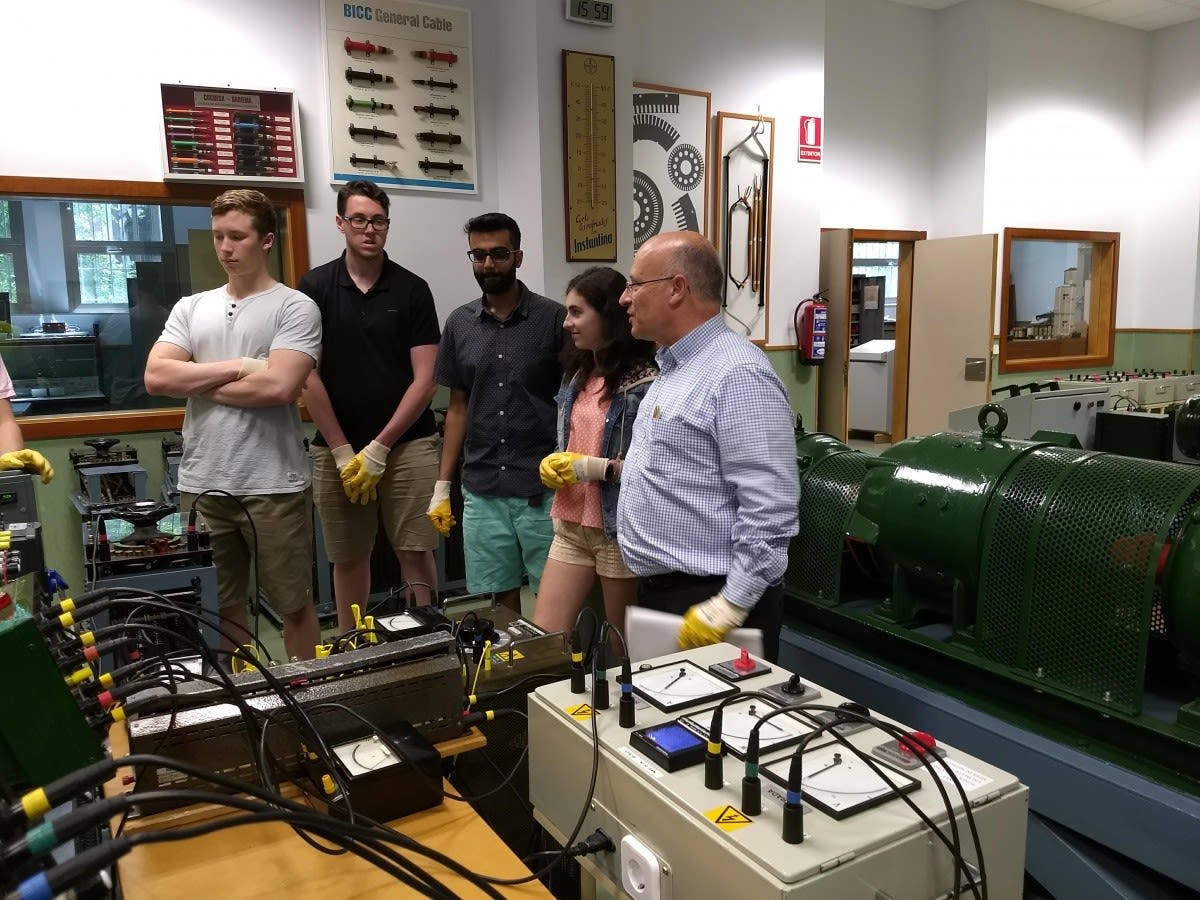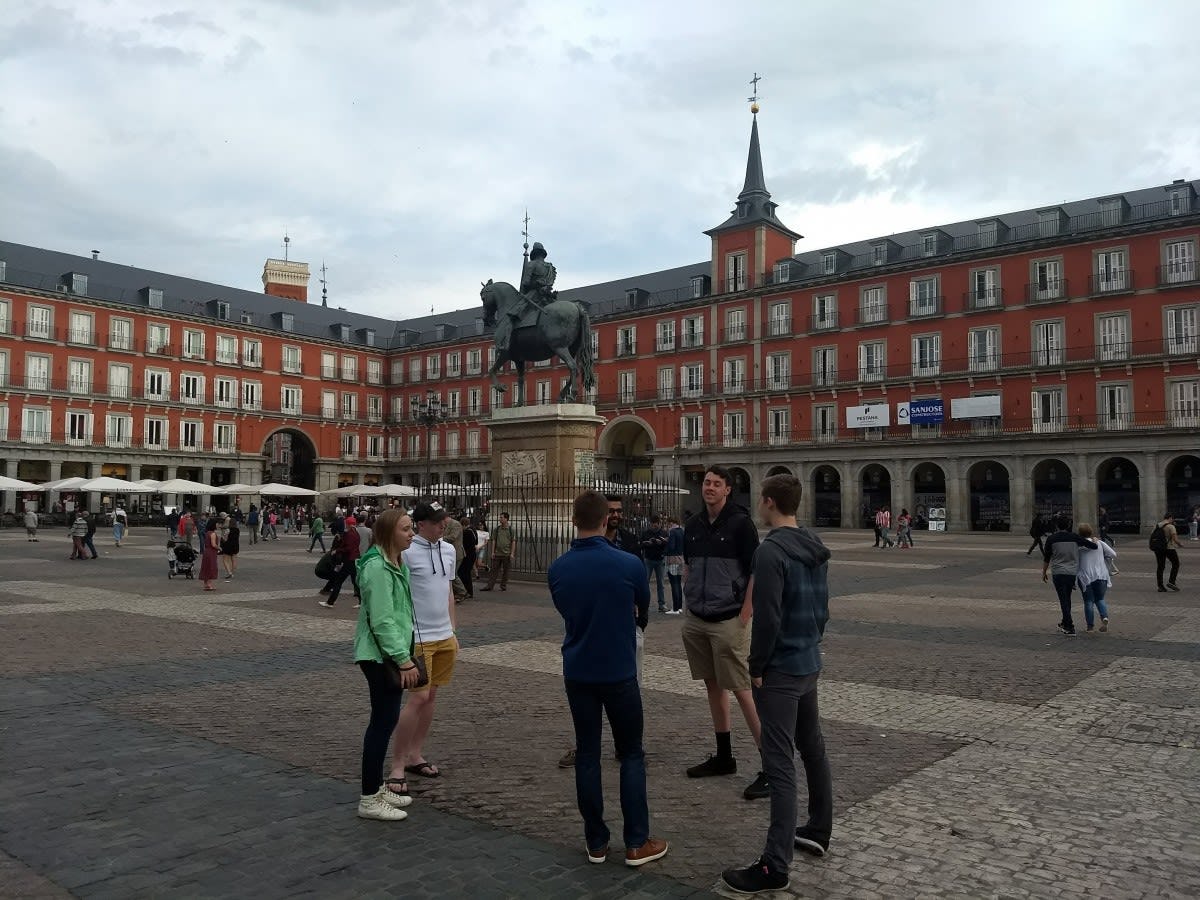Stevens Partners with Comillas University in Spain for unique study abroad opportunity
The world is increasingly turning to sustainable, alternative energy sources to power its future. In order to meet that need, engineers must not only be well-trained in sustainable practices and communicating across different disciplines; they must also be able to work in a global community.
Stevens Institute of Technology provides that training in its sustainable energy summer program.
Led by professor and department chair Ronald Besser, the program is a collaboration between Stevens and Comillas Pontifical University in Madrid, Spain. It began ten years ago as part of Stevens’ green engineering program and is now a full-fledged study abroad program for both undergraduate and graduate students.
It’s a program many students look forward to—as does Besser.
"I regularly teach a graduate course in chemical reactor design, which is very technical, narrow and deep," Besser says. "This course at Comillas is the opposite of that, and I know I can learn a lot from these students—and always do. That’s my favorite part."
Committed to building a sustainable future
The summer program is a great fit for Stevens. As an institution, Stevens has a strong commitment to sustainability. Stevens has heavily invested in recycling, energy conservation, water conservation, food waste reduction and other efforts across campus, earning it a prestigious silver ranking from the Association for the Advancement of Sustainability in Higher Education.
It’s a great fit for the Department of Chemical Engineering and Materials Science, too, since many of its research projects—from flexible solar cells to converting algae oil into fuel to emerging battery technologies—are in the sustainable energy space.
"In the U.S., we have a fossil fuel infrastructure, meaning we use all other alternative energy sources like solar and wind as supplements to our existing system," Besser says. "When we’re no longer able to rely on fossil fuels for the majority of our energy needs, we’re going to have to have a really good system to replace that old infrastructure—and there’s a big opportunity for researchers to help make that transition."
That desire to meet growing infrastructure needs, combined with Spain’s status as a leader in green energy, is why Stevens leads this summer program at Comillas. It gives students firsthand experience of practices and expertise that’s hard to find anywhere else.
Building a global passion for sustainability
Stevens sustainable energy summer program combines a curriculum, lectures and research projects to introduce sustainability concepts and help students understand the breadth and scope of the industry on a global scale while learning and traveling alongside Spanish peers. The 2018 program was the first time Stevens’ students had the opportunity to participate in immersive language and cultural classes that counted toward their overall course load. It was also the first time they were able to participate in an additional six-week research project.
Comillas has a strong international reputation in electrical power engineering, and as such offers key lectures in that area. The other lectures cover topics as diverse as introducing wind power and energy, the effects of carbon dioxide on the environment, and bringing electricity to rural populations. The research projects enabled students to help create cutting edge cements for dental, bone and other biomedical applications as well as conducting sustainability analysis on a salt mine.
The students loved it.
"By the end, the students really grasped the importance of sustainability on a global scale," Besser says. "They really understand the core principle that if engineers are going to meet the energy needs of mankind, we need to do it in a sustainable way. They understood that we know ways to do it, reasons we’re not doing it yet and ways to resolve the situation by investing in alternative solutions. They went from grappling with the subject matter to being able to talk about it, write about it and present on it. That was so gratifying to see."
Some students are so inspired by what they learn that they choose to continue studying sustainability at Stevens. "This summer, I have a student doing research in my lab who completed this program last summer," says Besser. "Two more students finished their bachelor’s degrees after doing this program and pursued master’s degrees in this department. One went on to pursue a Ph.D. in sustainable energy at École Polytechnique Fédérale de Lausanne in Switzerland." The other recently finished her Ph.D. in chemical engineering at Rutgers. "It’s really gratifying to see your students going on to do bigger and better things," Besser adds. "I hope to see more of those kinds of outcomes for Stevens students with the sustainable energy summer program."
Developing global engineers
In addition to seeing students pursue additional sustainability studies, Besser hopes to see them continue doing bigger and better things in industry.
"One of the things we’re hearing from the employers hiring our students is that engineers need to have an international mindset," Besser says. "Take a company like Exxonmobil, which regularly hires our graduates. They’re based in the U.S. but have offices all over the world. In order to work there, our engineers will need skills related to working in an international climate: speaking a different language, cultural adaptation—these are skills we want our graduates to have because that’s what these companies are asking for."
"We have to find accessible ways for our students to gain really tangible international experiences because they are going to be part of an international community. The sustainable energy summer program does exactly that."





